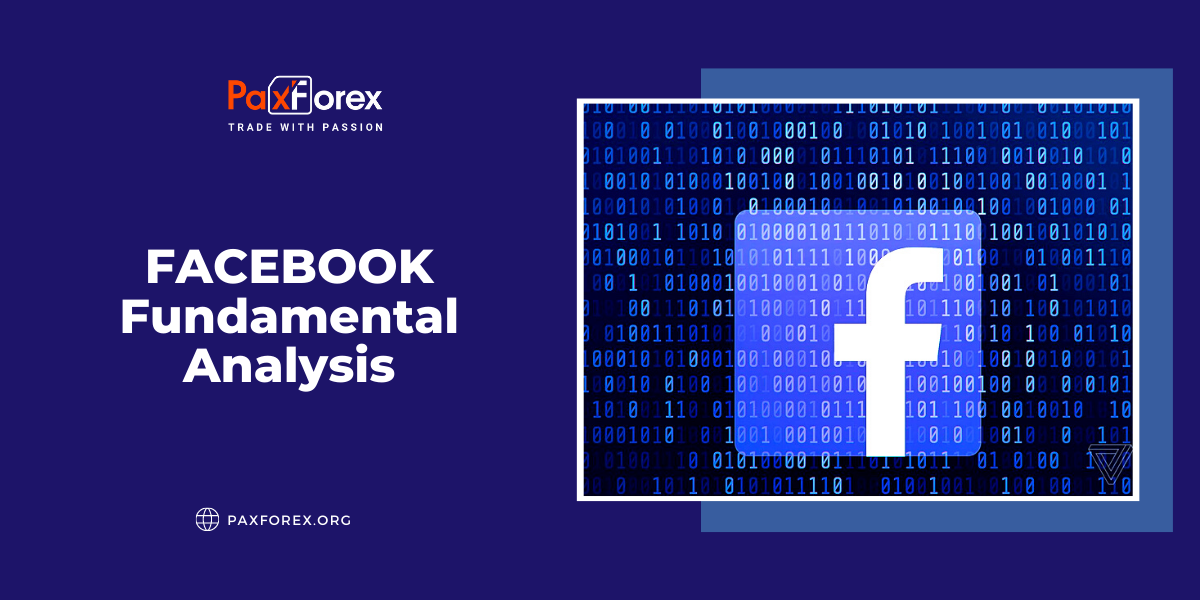
Source: PaxForex Premium Analytics Portal, Fundamental Insight
Over the past few weeks, Facebook has been in the headlines for all the wrong reasons. In mid-September, The Wall Street Journal began publishing a series of investigative articles called "The Facebook Files," which criticized the social media giant for its business practices. These publications coincided with the surprise announcement that Facebook Chief Technology Officer Mike Schroepfer, who has held the position for 13 years, would step down next year. Schroepfer will be succeeded by Andrew Bosworth, who is currently head of Facebook's hardware division. Bosworth's appointment raised more questions after an internal memo from 2016 surfaced. In that memo, Bosworth stated that Facebook should continue to connect people even if "someone dies in a terrorist attack coordinated by our tools" or "takes a life by exposing someone to bullies." In early October, Frances Haugen, a former data scientist and product manager for Facebook, identified herself as a whistleblower who provided internal documents to The Wall Street Journal in an interview on "60 Minutes." Those reports prompted a new hearing before the Senate Commerce subcommittee, which began Sept. 30 and led to Haugen's Oct. 5 testimony. On Oct. 4, Facebook, Instagram, WhatsApp, and Oculus went offline for more than six hours, the most serious outage in the company's history. This ongoing string of bad news, along with a broader sell-off in tech stocks, has caused the Facebook stock to fall about 12 percent over the past month. But can these controversies really hold back Facebook's long-term growth? Or have they simply created another buying opportunity for investors who still believe in Facebook's future? The Wall Street Journal claims that Facebook is using a system called "XCheck" to shield its millions of VIP users from the usual enforcement rules, that the company turned a blind eye to how "toxic" Instagram was to teenage girls, and that an algorithm change in 2018 that was designed to increase user engagement led to sharper conflicts for audiences instead. The report also claims that Facebook didn't crack down on posts about illegal activity even after they were flagged by its own employees, that misinformation on its platform prevented many Americans from getting vaccinated, and that the company was trying to engage teenage users well before the recent development of Instagram Kids, which was suspended in late September as the Facebook Files crisis escalated. During an interview on "60 Minutes," Haugen said that whenever Facebook faced a conflict of interest between "what's good for society and what's good for Facebook," it repeatedly "chose to optimize for its own interests, like making more money." The Facebook Files and the Senate hearings alone probably won't be able to stop the growth of the tech giant. However, they could provide new support for the Federal Trade Commission's ( FTC ) crusade to break up the company, as well as an escalation of Apple's attack on Facebook's data processing practices. Last December, the FTC filed a lawsuit against Facebook, alleging that its acquisitions of Instagram and WhatsApp were anti-competitive. That lawsuit was dismissed in June, but in August the FTC filed an amended lawsuit against Facebook, in which it still insists on separating Instagram and WhatsApp. Facebook asked the court to dismiss the new suit in early October, but the Facebook Files situation could tip the scales in the FTC's favor. It could also bolster support for Apple's recent privacy update for iOS, which allows users to opt-out of data-tracking features in all apps. Last quarter, Facebook warned that Apple's iOS update would likely affect the company's growth in the second half of the year. Analysts still expect Facebook's revenue to grow 39 percent this year, thanks to an easy comparison to the initial impact of the pandemic last year but will grow only 20 percent next year as the company faces more regulatory and platform hurdles. Facebook has been hit by a barrage of negative headlines, but investors should remember that the company has already weathered numerous scandals, including the Cambridge Analytica scandal, the Myanmar genocide cases, and the Jan. 6 attack on the U.S. Capitol. Each time, critics have urged people to boycott Facebook. But Facebook continues to grow, with 3.51 billion people monthly using its family of apps (Facebook, Messenger, Instagram, and WhatsApp). Even if the FTC is successful in splitting Facebook into several smaller companies, its investors are likely to get new shares of Instagram and WhatsApp, which could bring much more profit than Facebook's core business. Therefore, Facebook will continue to expand, and the recent controversy will not significantly slow its growth-especially in foreign markets that do not follow the story of the Facebook Files. If you have moral objections to Facebook's business practices, don't buy its stock. But if you think the company is simply in the painful throes of growth, its stock still looks like a bargain at 23 times forward earnings
As long as the price is below 348.00, follow the recommendations below:
- Time frame: D1
- Recommendation: short position
- Entry point: 333.00
- Take Profit 1: 308.00
- Take Profit 2: 298.00
Alternative scenario:
If the level of 348.00 is broken-out, follow the recommendations below:
- Time frame: D1
- Recommendation: long position
- Entry point: 348.00
- Take Profit 1: 364.00
- Take Profit 2: 373.00













